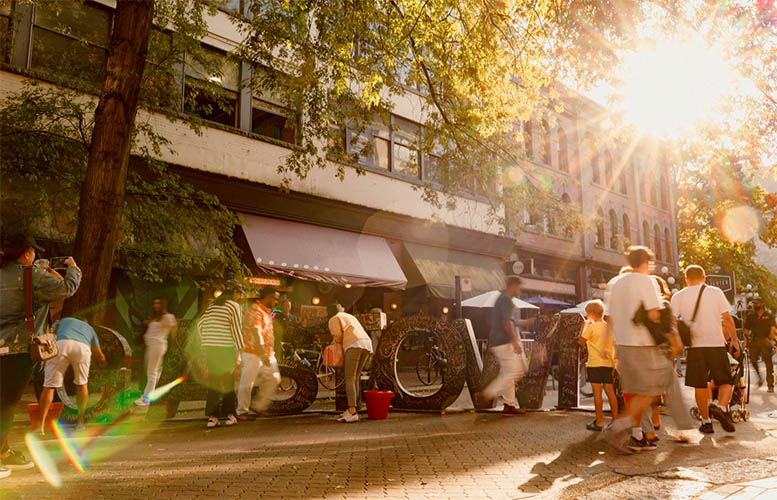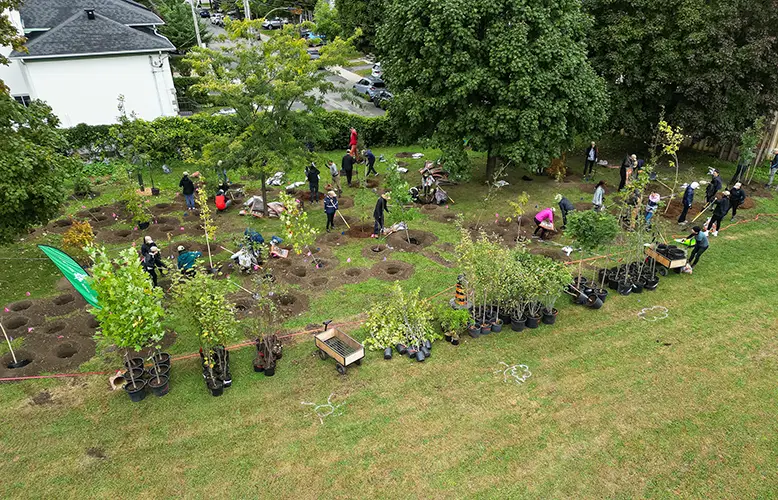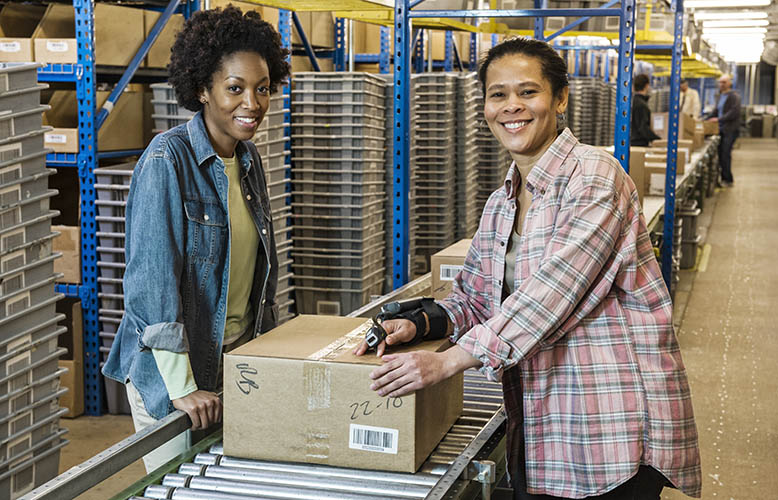Today, Booking.com released new research, with insights gathered from more than 30,000 travellers across 32 countries and territories, highlighting that the impact of their trips remains top of mind. 62% of Canadian travellers say that they want to travel more sustainably over the coming 12 months; a 15% increase over what the company’s 2021 data found. With 76% of Canadian travellers confirming that sustainable travel is important to them, 41% of respondents cited that recent news about climate change has influenced them to make more sustainable travel choices. To that end, a quarter (26%) of Canadian travellers say that the sustainability efforts of accommodations and transport providers play a strong role in their property and transport decisions respectively. In fact, 65% of Canadian travellers say they would be more likely to choose a sustainable accommodation whether they were looking specifically for one or not.
In search of more sustainable stays
26% of Canadian travellers have seen a sustainable accommodation on an online travel site over the past year and 28% indicated that they actively look for information on the sustainability efforts of a property before they book. Even more encouraging are the 39% of Canadian travellers who say they have stayed in a sustainable accommodation over the past year. Of those who have experienced a more sustainable stay in the past 12 months, the reasons for selecting one vary:
- 36% said they chose it to help reduce their impact on the environment
- A third (35%) wanted to have a more locally relevant experience
- 30% believe sustainable properties treat the community better
While 73% of Canadian travellers intend to stay in a sustainable property at least once in the coming year, there is still work to do to make more sustainable stay options accessible for everyone.. Of those who didn’t stay in a sustainable accommodation over the past year, 29% said they didn’t know they existed. While this is down 5% from 2021, indicating that awareness is growing, a quarter (24%) said they still didn’t know how to find them. 66% admit that they don’t actively look for the sustainability efforts of a property before they book, but if easily accessible, they say they will review it, which further underlines the importance of making this sustainability information transparent and understandable for a broad audience of travellers.
Alternative destinations and timing
There is consensus amongst travellers on wanting to avoid busy and over-visited destinations, with a third (31%) saying that they chose to travel outside of peak season and a quarter (24%) choosing to go to a less popular travel destination over the last 12 months to avoid overcrowding. To that end, when thinking about future trips, 38% said they’d be willing to exclusively travel outside of peak season to avoid overcrowding, and 59% revealed that they would avoid popular tourist destinations and attractions to ensure a more even dispersal of the impact and benefits of their visit. 28% of Canadians would even be willing to choose an alternative to their preferred destination to help avoid overcrowding.
On the flip side, 37% struggle to find appealing destinations that are less crowded and 34% feel like it’s not possible to find sustainable travel options in cities or other popular tourist destinations. This indicates an opportunity for travel platforms to work with accommodation providers in these destinations to help them progress on their sustainability journeys and in turn, highlight more sustainable options, as well as to help consumers discover alternate times and places to take their trips, without sacrificing on experience.
Connection to culture and local communities
A regenerative philosophy is influencing decision-making, with 54% of travellers saying they want to leave the places they visit better than when they arrived and two-thirds (65%) wanting to have experiences that are representative of the local culture. In fact, nearly a quarter (22%) say they have actively familiarized themselves with the local cultural values and traditions at their travel destination in advance of their trips and the same percentage would be willing to pay more for travel activities to ensure they are giving back to local communities. Despite the appetite to give back and connect during their travels, 32% indicate that they don’t know how or where to find activities or tours that ensure they are actually having a positive impact and giving back to the local community.
Tipping point for transportation
Canadian travellers are mindful about how far they travel, how they get there and how they get around once they’re there. A quarter (26%) say they chose to travel to a destination closer to home to reduce their carbon footprint and over one in five (18%) indicated that they researched public transport and/or options to rent a bicycle in their chosen destination. 12% of respondents also chose to travel by train instead of car for longer distances and over a quarter (27%) say they feel ashamed to fly because of its impact on the environment. When it comes to booking transportation for their trips, 30% actively look for sustainability information. While 64% reveal that they don’t actively look for more sustainable transport options, it still has an impact on booking behavior and customer satisfaction. For example, although 34% say sustainability efforts don’t play a strong role in their transport choices, they report that it can influence their final choice. And for the 27% who say that sustainability efforts play no role in their choice of transportation, knowing that the transport option booked follows sustainability best practices still makes them feel good, opening up a wide range of opportunities to grow consideration for more sustainable options across the entire trip experience.

Continuing the journey to more sustainable travel for everyone
With more than 100,000 properties globally now being recognized for their sustainability efforts with a Travel Sustainable badge on Booking.com, the company has also further expanded the number of third-party certifications and labels that automatically qualify accommodations to receive it. In addition to those officially approved by the Global Sustainable Tourism Council (GSTC), Green Tourism and the EU Ecolabel, this now also includes Green Seal, Nordic Swan Ecolabel, Green Hospitality Ecolabel, Ibex Fairstay, Fair Trade Tourism, LEED and Edge.
Booking.com remained carbon-neutral in its operations in 2021 and transitioned to 100% renewable electricity towards the end of 2021, an important step as part of the company’s contribution to Booking Holdings’ recently released Climate Action Plan. The first of its kind for any global online travel company, its Climate Action Plan functions as a strategic framework for how Booking Holdings intends to make its operations, services and the travel industry more sustainable. In line with the definitions and measurements established by the Science Based Targets initiative (SBTi), the Climate Action Plan includes ambitious targets that aim to help the company achieve a 95% reduction in scope 1 and 2 emissions by the end of 2030, 50% reduction in scope 3 emissions by 2030, and net-zero emissions by 2040.
“With increased pressure on our natural resources and the undeniable impact our way of life is having on the environment, we are 100% committed to leading the industry in charting a more mindful and responsible course for the future of travel,” said Glenn Fogel, CEO of Booking.com. “We have ambitious goals for what we want to achieve, but together with our partners across the industry and the passion of our innovative employees, we can continue to make it easier for everyone to experience the world in a more mindful and responsible way. We believe that travel is and should remain a powerful force for good, bringing enhanced cultural understanding, socio-economic opportunities for countless communities and the potential to help rejuvenate and protect our planet for the long term.”
To download Booking.com’s full 2022 Sustainable Travel Research Report, please visit the Booking.com global media room.
For more details on Booking Holdings’ Climate Action Plan and to view and download the Company’s third annual Sustainability Report, detailing initiatives throughout 2021 to engage responsibly with the world, drive long-term societal value and promote a more sustainable travel industry, please visit: bookingholdings.com/sustainability.

































